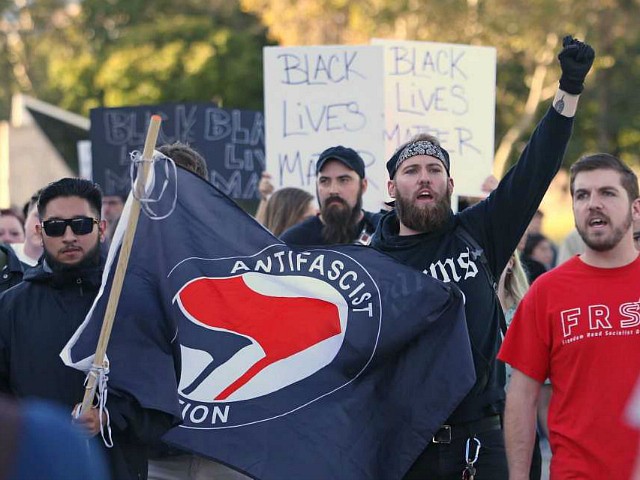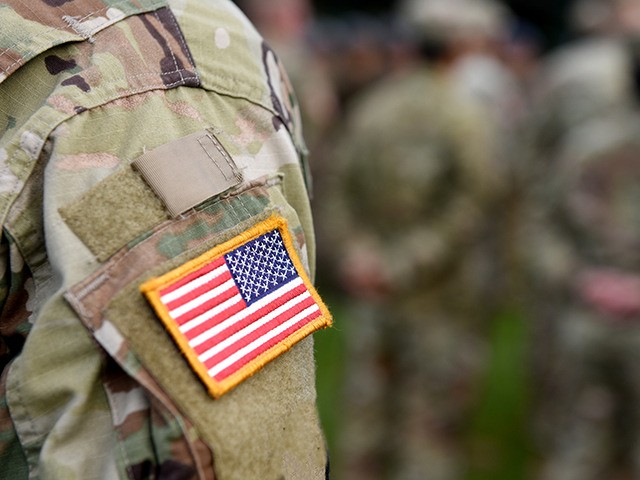A RAND Corporation study released Tuesday found that support for extremist groups and ideals was lower among military veterans than the general population, despite a Democrat and left-wing media narrative suggesting it is higher.
After some Trump supporters broke into the Capitol on January 6, 2020, the media honed in on participation by military veterans, and the Biden administration and military leaders embarked on an effort to rid the military of “extremists.”
However, the RAND report found that “considerably fewer” veterans expressed support for Antifa and “much lower support” for white supremacy than the U.S. population overall.
“Veterans also expressed relatively less support for the Proud Boys (4.2 percent versus 9 percent) and the QAnon conspiracy theory (13.5 percent versus 17 percent). About 5 percent of the participants expressed support for Black nationalist groups,” it added.
Interestingly, the study found that Marine Corps veterans reported the highest levels of support for Antifa, the Proud Boys, and black nationalists, as well as the highest levels of support for political violence and the Great Replacement theory.

ANTIFA protesters demonstrate on the University of Utah campus against an event where right-wing writer and commentator Ben Shapiro is speaking on September 27, 2017, in Salt Lake City, Utah. (Photo by George Frey/Getty Images)
It also said only a minority of the veterans who expressed support for extremist groups also endorsed the need for political violence.
“We found no evidence to support the notion that the veteran community, as a whole, exhibits higher rates of support for violent extremist groups or extremist beliefs than the American public,” said Todd C. Helmus, the study’s lead author and a senior behavioral scientist at RAND.
“However, our findings do suggest work still may be needed to make sure veterans are not susceptible to being recruited by those with extremist ideologies,” he added.
The study was the first nationally representative survey of veterans’ views about extremism and extremist groups.
The report acknowledged “fears” that support for extremism among veterans was higher.
“Given the anecdotal information about extremist group recruitment preferences and their active targeting of veterans, we would have assumed that these reported prevalence rates would be higher,” Helmus said.
Still, Helmus said work “may” still be necessary to “make sure veterans are not susceptible.”
“[O]ur findings do suggest work still may be needed to make sure veterans are not susceptible to being recruited by those with extremist ideologies,” Helmus said.
“It seems clear that veterans bring a unique and dangerous set of capabilities to extremist groups,” said Ryan Andrew Brown, coauthor of the study and a RAND senior behavioral scientist. “So even a smaller prevalence rate of extremist attitudes among veterans could still represent an outsized security threat to the United States.”
The study surveyed a group of veterans from the NORC AmeriSpeak panel during November and December 2022.
Flashback: Susan Rice Assures Reporters that Intel Community Is Focused on “Domestic Violent Extremism,” “Nationalists”
The White House
COMMENTS
Please let us know if you're having issues with commenting.